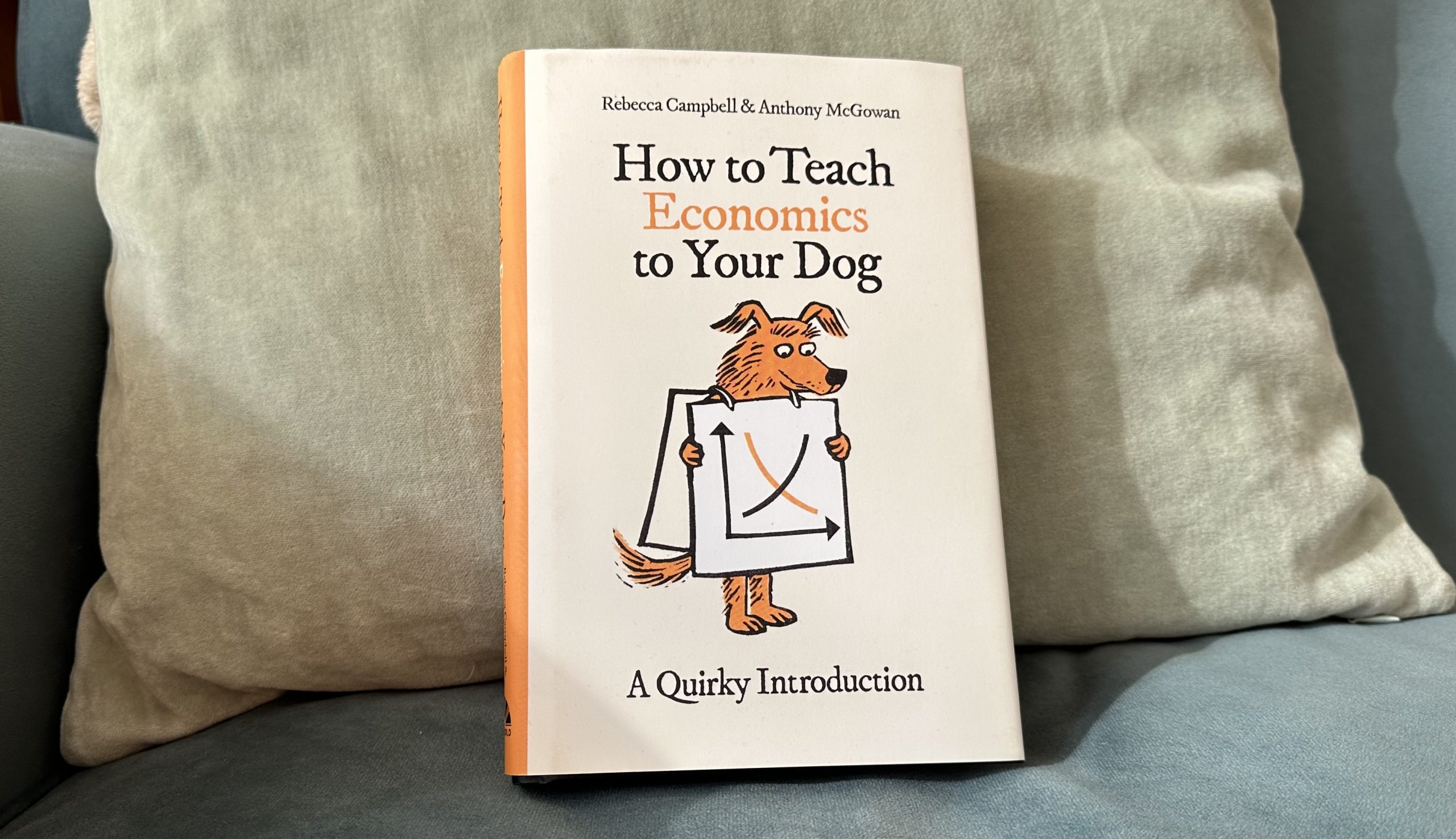 Andrew Papanikitas is deputy editor of the BJGP, and a GP in Oxford. He is on Twitter: @gentlemedic
Andrew Papanikitas is deputy editor of the BJGP, and a GP in Oxford. He is on Twitter: @gentlemedic
I enjoyed this book because it introduced me to to a topic of global importance under the guise of a fun holiday read. It is very much aimed at the beginner without any formal economics education when it comes to classical economic theory, but covers a lot of concepts that help us understand some of the decisions being made by policymakers and industry leaders around us. It also begins to arm the reader to critique some of the more dubious ideologies and approaches demonstrated by people in power.
In this book however, the dialogue is between an economist and her small dog. Each chapter is a ‘walk’.
The method adopted by this book which makes it a fun read is one which has a long heritage. The idea of a dialogue goes back to ancient times with many of the philosophical classics taking place as dialogues between teachers such as Socrates and different kinds of learner or disputants. In this book however, the dialogue is between an economist and her small dog, Monty. Each chapter is a ‘walk’. The economist is married to a philosopher and they have two children, all of whom are referred to from time to time as several instances of domestic comedy or weaponised to unpack ideas, such as the invisible hand of the market, which emerges from a story about the failure of the household toaster. Is it not amazing the toaster can be bought for a few pounds and yet to try and assemble one from scratch would cost a member of the public many times that amount and require skills and resources that few possess? The book is, in fact, written as a partnership between its two authors themselves, a lecturer in philosophy and lecturer in economics. They also, in real life, have a dog, who has starred in a previous volume, ‘How to teach philosophy to your dog’.
Many of the concepts discussed in this book have a direct bearing on policy and practice in relation to primary care.
We all need to enjoy learning about society from time to time (emphasis on enjoy). Many of the concepts discussed in this book have a direct bearing on policy and practice in relation to primary care. At the very least, the effect on government policy on welfare should be something that is understandable by those who have to pick up the pieces. Globalisation applies to the migration of workers, as well as to consideration of ethical procurement in the supply of medical consumables from cotton swabs through to disposable equipment. Thinking about how our supply chain works also has implications for medical education and future medical workforce – the NHS effectively trains its own future healthcare professionals. Whilst many of the readers of this journal may be all too familiar with the concepts mentioned above, many are not. In his published James Mckenzie lecture, Martin Marshall lamented the lack of political engagement of general practitioners, “Rather than complaining that there is a Machiavellian plot to destroy general practice, we need to enter robust and informed discussions about the pros and cons of the current model. Rather than revelling in our small business ethos we need to recognise that collectively general practice could be immensely powerful. Just look at our economic clout.“1
I read the book and wondered whether some of that disengagement stems from a lack of academic literacy, at least when it comes to politics, economics and indeed political economy. This little book is a fun introduction and an easy read.
Featured book: Campbell R and McGowan A, How to Teach Economics to Your Dog: A Quirky Introduction, Oneworld Publications (6 Oct. 2022), Hardcover, 320 pages, ISBN: 978-0861543793, RRP £12.99
Reference
- Marshall M, Practice, politics, and possibilities,
Featured photo taken by Andrew Papanikitas, 2023






